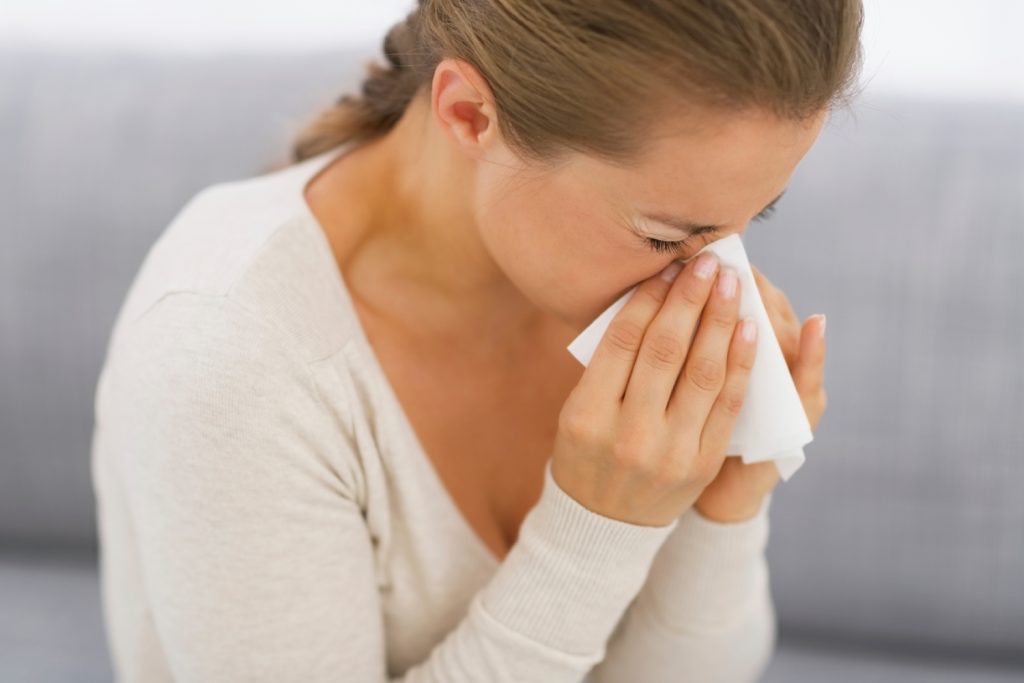Are You Allergic to Your Air Conditioning?

It’s that time of year again. Winter’s turning to spring, and as nature comes back to life, so do your allergies. You expect pollen to leave you sneezy, but when you go indoors for a respite, you feel even worse. What gives? Was Time magazine right when they asked, “Is My Air Conditioner Killing Me?” Before you panic (or start hoarding Kleenex), let us put your fears at rest and explain what’s going on. At Ace Plumbing Heating & Air Conditioning, we’ve seen this many times before.
Dispelling a Myth
Let’s start by explaining what isn’t happening. Your sneezing has nothing to do with the temperature, as such. You aren’t allergic to cold air. That doesn’t mean, however, that your air conditioner couldn’t be the root of your problems.
Air Conditioners and Indoor Air Quality
So if the cold’s not the culprit, what is? When air conditioning first started to become common in the 1970’s, people started reporting a rise in what was dubbed “sick building syndrome,” a collection of respiratory issues and illnesses that seem to go side-by-side with AC. It turns out that it’s the mechanics of air conditioning, rather than the temperature, that’s at the root of the problem.
Indoor air quality can be just as bad as outdoor air quality. The process of cooling high volumes of air leads to humidity, which in turn leads to the ideal conditions for bacteria, mold, and mildew to grow. Once you add other contaminants to the mix — if, for instance, you smoke indoors, you own pets, your home’s dusty, or if you like sleeping with the windows open on a cool evening — you’re creating the ideal conditions for allergies and illness.
Improving Indoor Air Quality
Luckily, indoor air quality is one of the easier problems to solve for. Let’s look at three of the most common AC-related causes of poor indoor air and how you can deal with each:
Condensation
When an air conditioning unit is properly sized and installed in a properly-insulated home, condensation ought not to be a problem. However, homebuilders don’t always size units correctly, which can lead to problems with condensation; window units purchased for homes without central air often suffer the same issue. Aging units, or those in poor repair, aren’t doing you any favors either. Those problems are exacerbated if your home is poorly insulated or if you’re leaving windows open, since that lets outdoor humidity in. Finally, improper drainage (or a drain that’s clogged) can also contribute to indoor humidity.
Indoor Contaminants
There’s a long list of things you can do to improve indoor air quality:
- Stop smoking indoors (or just quit smoking, period)
- Keep pets clean and well-groomed
- Clean and dust regularly
- Do laundry regularly
- Clean out dryer vents on a regular basis
Since you can’t hope to eliminate every stray dust mote or cat hair, the most important things you can do with regard to your air conditioning unit are to change your filter regularly, get regular air conditioning tune-ups, and keep your ducts and registers clean.
Outdoor Contaminants
One of the most common ways to avoid outdoor allergens from coming indoors is to keep the windows shut and the air conditioning on. Just because the air is cooler at night doesn’t mean there’s less dust and pollen in the air, and what’s outdoors will make itself at home inside if given the chance.
All else being equal — if you keep a clean home, you change your filters regularly, and keep your air conditioner in proper working order — your indoor air quality doesn’t have to suffer, and neither do you. For help dealing with the heat and your allergies, the solution could be as simple as contacting Contact Ace Plumbing.



